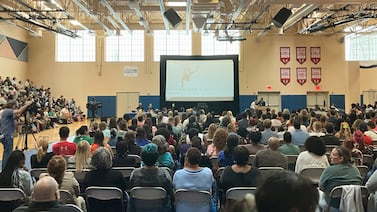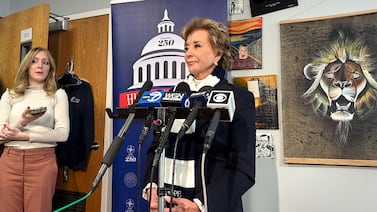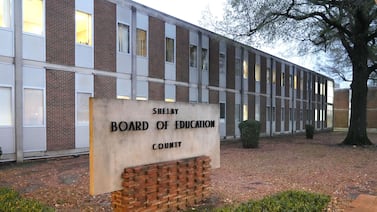Eight months after getting dinged by the State Board of Education for its approach to covering reading instruction, Metropolitan State University of Denver earned glowing praise for changes to two majors within its teacher preparation program.
On Thursday, the state board granted full approval to the university’s elementary education and early childhood education majors, an upgrade from the partial approval the board awarded the majors last summer.
The decision represents a milestone of sorts in the push for better reading instruction for Colorado children. While state education officials have persistently flagged teacher preparation programs for inadequate or inconsistent reading instruction coursework over the last couple years, MSU Denver is the first prominent program to win the state’s blessing after an overhaul.
The State Board’s decision, which applies to both MSU Denver’s traditional and alternative teacher prep programs, comes after the university made a variety of changes to how future teachers are trained to teach reading.
These include the adoption of a standard textbook that adheres to instruction methods backed by science, new training for faculty members, and the addition of seminars on reading instruction for students who had already finished most or all of their literacy coursework before changes were made.
Together, the university’s traditional and alternative teacher prep tracks enroll about 900 students in the elementary and early childhood majors.
The state began cracking down on teacher preparation programs, specifically their approach to reading instruction, in 2018 as part of a broader push by lawmakers, state education officials, and parents of students with dyslexia to get more Colorado children reading at grade level.
In addition to pushing teacher prep programs to make changes, the state has mandated training on the science of reading for all kindergarten through third grade teachers, and instituted new rules on what reading curriculum schools can use.
The “science of reading” refers to a large body of research on how children learn to read. One key finding is that teaching phonics in a direct and systematic way helps build skilled readers.
State education officials, who recommended the board grant full approval to the two MSU Denver majors, called the university a model and said leaders there have paid close attention to the state push for evidence-based reading strategies.
“I commend MSU’s Denver’s leadership … who really did prioritize this even during our COVID times,” said Mary Bivens, director of educator development at the Colorado Department of Education. “They did start prior to [the pandemic], but they did have to finish during quite a crazy time.”
An education department report detailing the changes MSU Denver made noted the adoption of a new primary textbook across all reading courses — “The Teaching Reading Sourcebook.”
The report also said all literacy faculty within the elementary and early childhood majors are taking “The Reading Teacher’s Top Ten Tools” training. The course is one of several state-approved options for the required K-3 teacher training.
MSU Denver isn’t the only prep program the state has sent back to fix shortcomings in reading instruction over the last two years. Two other prep programs — the University of Northern Colorado and Regis University — are still in the process of making changes. State officials first ordered the University of Northern Colorado, the state’s largest teacher prep program, to make changes in 2019, and again in June 2020.







